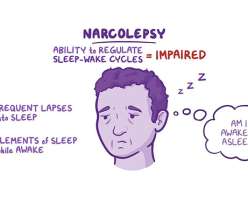Mental health and psychological well-being are one of the most neglected areas. April has been recognized as a stress awareness month. Do we need stress awareness?
This blog will help you know about the impact of stress awareness and the best ways to manage stress.
Why is Stress Not a Good Thing?
Stress is a normal part of life, but prolonged periods can harm your physical and mental well-being. People dealing with stress for continuous days may not even realize how negatively it can affect their quality of life. Stress affects almost all body systems, leading to severe mental, emotional, and physical health problems, including anxiety. Common causes of stress for many adults in the United States of America include finances, work, health, relationships, safety, and future concerns. It is important to know that most causes can be managed. Sometimes achieving stress-free life requires developing strategies and coping skills.
What is Stress Awareness?
April is designated as the stress awareness month to raise awareness about the negative impact that prolonged stress can have on your body and well-being and bring attention to stress management strategies. The aim of forming stress awareness month is to increase public understanding of the consequences of unmanaged stress and encourage helpful discussions that bring effects and appropriate stress management techniques. Several healthcare workshops, webinars, and discussions happen around stress awareness month. By participating in stress awareness month, we give importance to our health and build a culture that acknowledges how important it is to maintain a healthy mind and body, the balance between work and life, and much more.
Effective Ways To Reduce Stress in Everyday Life
Living in today’s fast-forward life, managing stress levels actively is important to maintain healthy mental and physical well-being. Fortunately, there are preventive measures you can take to help with anxiety symptoms. Employing effective ways to cope with stress can make a huge difference in how we perceive and tackle the challenges that come our way.
-
- Exercise
Regular physical activity has been proven to stimulate endorphins (feel-good hormones) secretions, which naturally help reduce stress and anxiety. Physical activities such as simple walking, yoga, or swimming have been known to reduce stress by increasing the secretion of endorphins in the body.
- Exercise
-
- Eat a healthy diet
Incorporating a balanced diet rich in whole foods and limiting caffeine consumption creates a more stable physiological environment, leading to a calm and focused mind. Eating a nutrient-rich diet that includes spinach, lentils, beans, and peanuts brings relaxation, while limiting caffeine consumption promotes a relaxed state of mind as stimulants like coffee increase the production of stress hormones.
- Eat a healthy diet
-
- Meditate
Mediation is a great relaxation technique; it calms your mind and body through focused breathing and visualization techniques. Meditation teaches you how to express your emotions healthily; mindful practices allow you to live in the moment without judgment. Progressive muscle relaxation involves tensing and then relaxing specific areas of your body at one time, and deep breathing exercises improve your heart rate and reduce tension throughout your body. Engaging in such mindful practices enables you to cultivate awareness and resilience as you learn effective ways of dealing with stressors and living a balanced life.
- Meditate
-
- Connect socially
Another best and easy way to reduce stress-related anxiety symptoms is to nurture social connections and build a strong support network. Sharing personal experiences and concerns with loved ones and trusted friends can build a sense of encouragement, which assists in buffering stress during tough times. Talking to a healthcare provider who can advise on managing stress-related anxiety symptoms is also useful.
- Connect socially
Ultimately, making positive changes in one’s lifestyle, like the ones listed above, can potentially help you deal with the symptoms. Stress Awareness Month is a perfect time to evaluate your stress levels and learn effective ways to deal with stress over time. Other lifestyle changes help relieve anxiety symptoms, including adequate sleep and avoiding drugs and alcohol. Engaging in calming activities like reading a positive book and listening to soft music plays a role in easing anxiousness related to stress.
If you or your loved ones are struggling with anxiety, taking immediate medical help can be highly beneficial. Managing anxiety gradually over time to improve your quality of life is possible.
Conclusion!
Stress management is essential for a healthy lifestyle. Knowing ways to manage stress can improve mental and physical well-being as worsening health issues. Stress reduction can be achieved in numerous ways, and improved stress awareness lays the foundation of an effective strategy.



